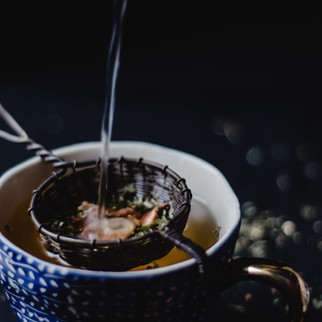Dreams for Green: Sustainable Food
- poetryunheard
- Mar 27, 2021
- 3 min read
In preparation for UnHeard’s new collection - Dreams for Green - we have been on the look out for tips on how to live sustainably, to make our dreaming a reality! With ideas from project producers and the UnHeard audience, we’ve collated these tips into one list:
Food Shopping:
Find local low waste shops or markets that sell packaging-free food and bring your own containers.
Reusable drinks bottles and coffee cups are a great way to cut down on single-use plastic.
Try to shop for loose, unpackaged, seasonal fruit and veg to ensure it has a more sustainable carbon footprint. A great way of doing this is at local markets.
If you have to buy packaged food, look for items in tins, glass, and cardboard/ paper over plastic as they are easier to recycle/ reuse.
Shop at local bakeries / bakery sections of supermarkets. Take reusable bags and use them for bread, rolls, pastries etc.
Bring your own bags to carry shopping. If you end up having to use plastic bags don't throw them away, re-use them.
Choose loose leaf tea over tea bags - it's fresher and has no hidden microplastics.
Choose ground coffee over single-use coffee pods. It can be easily found in recyclable/ compostable packaging from either shops or local coffee shops.
Plan meals so that you only buy what you will use. Use up fresh food you have before buying more.
Making the most of your food:
Grow your own herbs - less packaging, stays fresh and it's cheaper!
Store leftovers in food containers. Avoid and replace cling film with soy or beeswax wraps / kitchen cloths. Old sauce jars can act as great containers, or simply placing a plate over a bowl. Sustainable living can be really cheap! You don't have to buy new products, just use what you already have .
Make your own vegetable stock by boiling leftover veg scraps with seasoning.
Soak banana peels in water for a few days to make a great plant fertiliser!
Compost! Your scraps can be used as fuel and fertiliser instead of going to landfill.
A simple google can help you find the best way to store all of your fruit and veg so that it stays fresher for longer. TOP TIP: Most produce lasts longer at room temperature. Pay attention to keeping ethylene producers away from ethylene sensitive produce:
Producers: Apples, Avocados, Bananas, Tomatoes, Peaches
Sensitive: Broccoli, Oranges, Potatoes, Spinach, Mushrooms
Eating plant-based:
Eating a plant-based diet is a great way to reduce your carbon footprint significantly! - Farming animals for meat and dairy requires huge amounts of water, space and feed. The livestock industry alone generates nearly 15% of all man-made greenhouse gas emissions and contributes to a huge amount of deforestation.
Eating plant-based is also great for your health! Thanks to a surge in the popularity of the vegan diet, it is very accessible and affordable. Go vegan or simply start by reducing your meat/ dairy intake and try out the great substitutes you can find. Every little helps, you don't have to be perfect, just give it a go!
Unsustainable palm oil is responsible for large-scale deforestation, putting wildlife and biodiversity under threat, as well as contributing to greenhouse gas emissions and increasing the risk of climate change.Try to cut palm oil out of your diet or when shopping look for products containing RSPO certified sustainable palm oil.
Eat more variety - 75% of the world’s food supply comes from just 12 plants and five animal species. Greater diversity in our diets is essential as the lack of variety in agriculture is both bad for nature and a threat to food security.
Grow your own food - What’s better than fresh, home-grown produce straight from the garden? As well as being healthy and delicious, it is free from the carbon footprint of shop-bought food.
Tips from our followers:
Plan before you shop
Make friends with shopkeepers to get odd or bruised fruit
80/20 - buy 80% plastic free and you have 20% to spare on items that are harder to buy packaging free
Have one meal a day where you only eat leftovers - reduces food waste and saves cooking
Grow your own food from the stumps of carrots, lettuce and other veggies
Reuse tea and coffee grains - can work as great compost!
Buy reduced items at supermarkets to save them being thrown away after their use by date
If you can’t go vegan full time try it for just a few days a week to see how it goes
Set yourself challenges to cook with one less of one thing
Find out where your food is from - local markets are great for local produce, which saves air freight
Some good accounts to follow:
@oddboxldn
@piktfresh
@thesourcebulkfoods
@ripple_living
@zerowasteeastbourne
@vibrantveganco
@easyecotips
@thezerowasteguide
@plasticfreenewlife
@vegan_food_uk
@accidentallyveganuk
@thevegankind
@theegyptianplanteater
We hope this has been helpful for you on your own sustainable journey! Leave any tips you have in the comments, and we will add them to the post! Also, keep an eye out for our climate inspired collection, Dreams for Green, arriving in April 2021.





































Comments